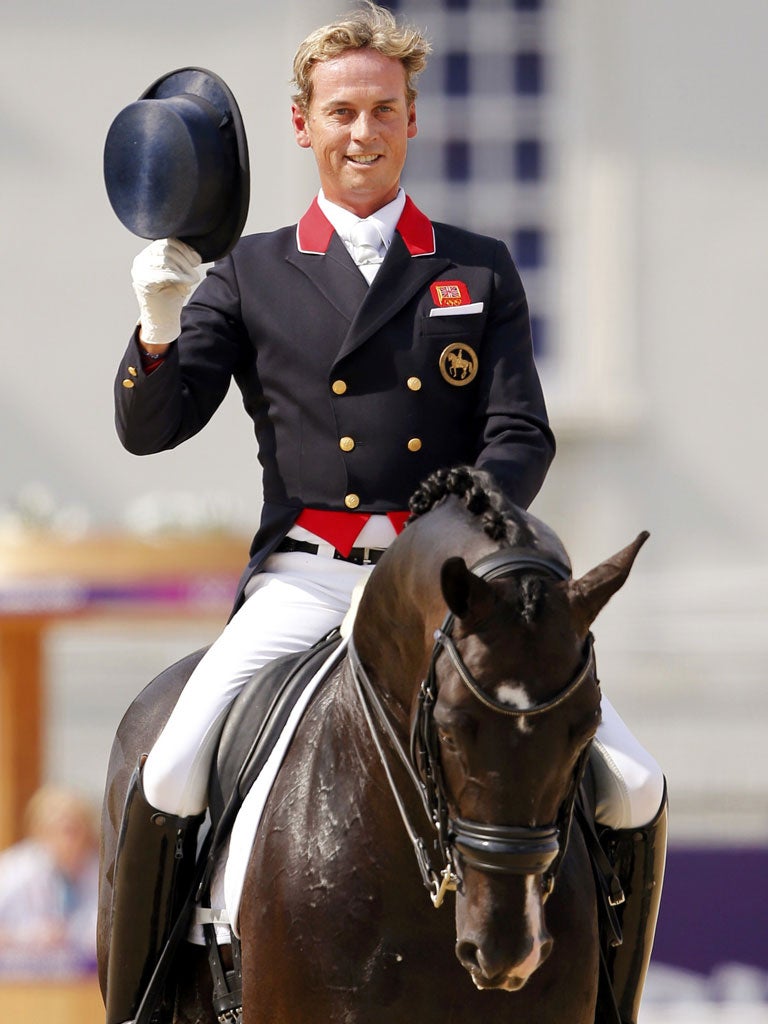Philip Hensher: Something is wrong with a culture when so many have to conceal their sexuality
Notebook

Back at the dawn of time, I was occasionally required to go outside the nice school buildings and practise some sport. It was not a high point of my life. Whether or not I had any inclination for exercise or physical competition, it had been decided in 1970s Sheffield that people like me were not going to be serious competitors. On the football field, it was accepted that the three or four people like us would gather near the goal, be labelled "defenders", and quietly ignored. Sometimes the sportsmaster or the more committed would call us the "mothers' union" or "backline bummers".
In any case, it was clear to us 14- and 15-year-old rejects that if you were growing up to be gay, as we all did, then sport and exercise were not for us. I had later patches of keen cycling, and the occasional venturing in the direction of the gym. But it was too late. I had been taught that gay people were not welcome in sport.
But that was a long time ago. Things have changed in every other section of society – the military, even. There is very little reason for anyone to keep their sexuality secret, and there are even laws to protect people from discrimination. What about sport?
When Carl Hester, the dressage rider, won a gold medal this week, he may have been the first openly gay athlete to win a medal at the summer Olympics. There are some 14,000 athletes appearing at the London Olympics and Paralympics. Of those, 23 are openly gay, of whom four are male. If it were not for dressage competitors, there would be exactly one.
You may say that it is none of anyone else's business, and in individual cases that is the case. But when an entire class of people feels unanimously obliged to conceal something so ordinary, there is something wrong with the culture.
As somebody who has been more or less openly gay since the early 1980s, I know how difficult these things can be. But sportsmen and women become important and admirable not just by running fast, but by standing up for social principles. We remember Jesse Owens, for example, where all his contemporaries have been forgotten. The Olympics has been rightly proud of setting an example, and offering an opportunity to sportswomen in Saudi Arabia. When is it going to start setting an example of openness and tolerance to gay people across the world?
The first major sportsperson who comes out at the peak of his or her career is going to be a hero, not just to their contemporaries, but to history. The rest of them already look like cowards, at work in an industry confident of its shame.
There's a market for rude restaurants
I'm a longstanding enthusiast for The New Yorker's restaurant reviews – not as recommendations for places to go, but the opposite. New York is full of good restaurants, and you wouldn't dream of going to these horrors instead. I've sometimes suspected the reviewer of making up the worst, but it is all, apparently, quite legitimate. The latest hit an amusing low point with a review of a nightmarish-sounding hellhole called Super Linda in TriBeCa.
"One must arrive ready for abasement, which is served with considerable creativity," it promisingly begins. An "intimidating" bouncer, a "cruel" hostess, and a "chic host" who approached a couple "not to offer consolation or a round of drinks, but to remark 'you really should check that', pointing to their insufficiently glamorous gym bag".
What happened to the rude restaurant? Peter Langan blazed a trail, in the 1980s, of abuse, once memorably falling asleep on Princess Margaret's table, and on another eating a cockroach which a complaining lady customer had brought back from the loo. But it must be years since Gordon Ramsay threw anyone out for asking for ketchup. Even Wong Kei, the legendarily insulting Chinatown restaurant, has toned itself down in recent years.
I blame the cult of the service industry. But if anyone wanted to buck the recession and start up a restaurant devoted to drunkenness, waiters with a dedication to the F and C words, and hosts prepared to tell customers that they can't bring that hideous bag into the restaurant, I dare say there would be a masochistic market for it. If it works in New York, after all, it might work in London.
Can we hit back at these accusers?
The barrister Simon Walsh has been unanimously and swiftly cleared of the charge of possessing and distributing "extreme pornography". The case should never have been brought. The images, accounts make clear, were not of the sort of acts that everyone carries out. But only gross homophobia or naivety could seriously propose that these adult consensual acts were things which would permanently harm anyone, physically, mentally, or morally.
The tone of the prosecution was set when a CPS barrister asked a witness: "People who attend sexual health clinics engage in more risky practices, do they not?" The witness, to her credit, answered: "People who attend sexual health clinics take their sexual health seriously."
Simon Walsh lost his job with the London Fire Authority and has been unable to practise as a barrister since the charges were brought. As in the case of Paul Chambers, the Yorkshireman who was prosecuted for joking about blowing up an airport, no consequences seem to follow for those who have attempted, on the flimsiest grounds, to destroy a life through frivolous prosecution. Might there not be a case for public accountability for this irresponsible behaviour?
Join our commenting forum
Join thought-provoking conversations, follow other Independent readers and see their replies
Comments
Bookmark popover
Removed from bookmarks